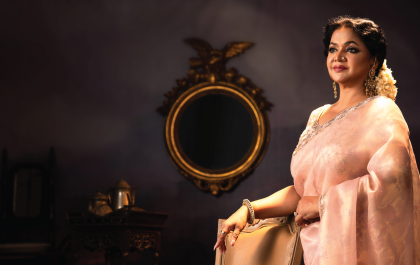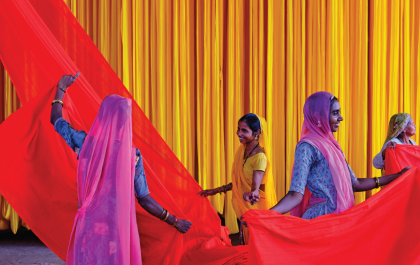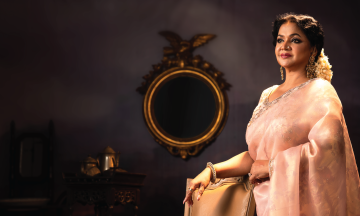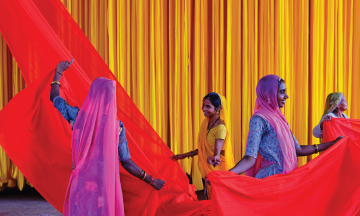By Faruque Ratul
Two-time National Award-winning actress, entrepreneur, and recently elected General Secretary of Bangladesh Film Artistes Association, Nipun Akhter has had a long and storied career. This month, she shares the highlights with MWB
You studied in Moscow and then lived in Los Angeles before coming back to Bangladesh in 2006. How did your film career start?
I was vacationing in Bangladesh in 2000 after being away for four to five years, when an old acquaintance, Shohanur Rahman Shohan, who directed the hit film Keyamat Theke Keyamat with actors Salman Shah and Moushumi, reached out to me about working on a film.
I was studying then, and time was an issue, so that didn’t happen, but when I came back in 2006, Shohan Bhai got in touch again about a role in a film directed by FI Manik. They were looking for an absolutely fresh face, someone who hadn’t even made any TV commercials.
They offered me the role. I went to the studio, where Shohan Bhai was also there, and we began shooting Pitar Ason the very next day. You could say that everything happened very spontaneously. I went to the studio at 7pm, and at 9pm I was cast, at 10pm, wardrobe came for fittings, and my first rehearsal was scheduled for the following morning at 7am. The work was completed within 25 days.
I had planned to return to the US afterwards, but before that, I got another offer, this time for an adaptation of Humayun Ahmed’s novel Shajghor, for the role of Kushum. Humayun Ahmed Sir being one of my favorite writers, I didn’t want to pass up the offer, so I finished the work in six days before leaving for the US.
I came back to Bangladesh in July of 2006 for the release of Pitar Ason, and that was “officially” the start of my career in film. You can say that it was something that began without much planning.
Did you have any acting aspirations before this? Any stage experience?
I did have familiarity with the stage, as I have a background in classical dancing. I have done many dance shows on stage while growing up. I performed for events such as the Education Weeks program, and I have many prizes from these events.
But while I always was a performer, I honestly never thought about films as my canvas. Being an actor wasn’t in the plans, since I had been living abroad and felt that there was a big gap between me and Bangladesh.

Why Moscow?
My father was in the Foreign Ministry, and one of his first postings was in Moscow. My sister went there to study medicine, and in 1999 I followed her to study in Russia.
17 years, 68 films, and counting. Which was the most meaningful role you’ve played?
All the roles have been meaningful to me. The producers have chosen each role with the intention of making it a meaningful and relatable experience for the viewers in the halls. So, all my films are very dear to me, and it’s hard for me to pick apart their value, but if I had to highlight any, I would mention the two films for which I received National Awards.
The first was Shajghor, which, as I have mentioned, had my heart because it was adapted from the work of one of my favorite writers, and written for screen by Humayun Sir himself. The role is of a girl with no prior experience, who gradually learns how to act, which suited me well because I too, was starting out without prior experience in acting. In the film, Kushum falls in love with her teacher.
The second work for which I won a National Award was Chader Moto Bou, in which I shared the screen with the inimitable Shabnur Apu. It was challenging to hold my own against such a veteran actor, so I worked hard and tried to learn from the experience, but didn’t expect that I would win a National Award for my performance.
So that’s two National Awards. How did that feel?
The whole process was exhilarating each time. I heard that I was in contention, and then I also heard I was falling behind, and then eventually I won. And as for the feeling after receiving the award, it is quite hard to put it into words.
Tell us a little bit about the changes you’ve witnessed over your career in acting?
I started working with 35mm film. I saw the transition from analogue to digital. This is one of the big changes I witnessed. When I started working, only the director and the cinematographer were privy to pre-production work. It was hard for me to know how I looked on camera [until I saw myself on screen]. The arrival of the digital age has allowed me to see myself in a scene on the monitor in front of me, and make the necessary adjustments. This was a big change.
I would also say I was fortunate to get to work with such great directors and co-stars. A lot of [big] stars came into the industry. And many left as well, so I was able to witness an evolution in this industry.
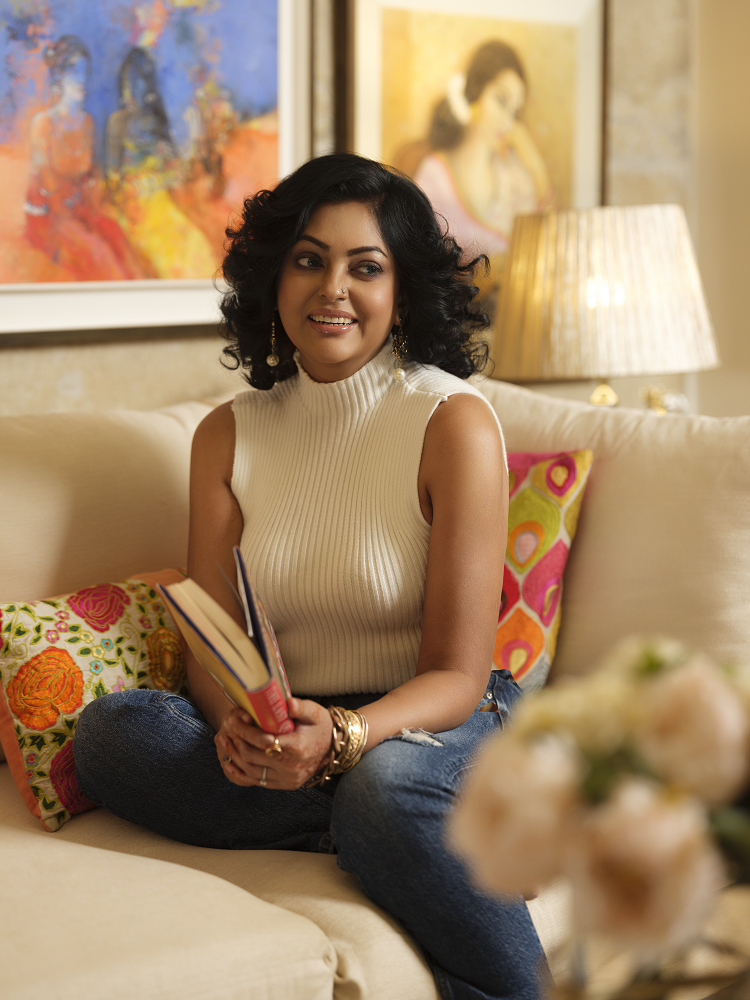
Your first OTT experience was with Garden Game in 2019. How do you feel about this platform?
My experience was very good. Ever since I started working in films, I have always enjoyed trying new technology. No matter what medium it is, be it a web series, TV drama, or film, I always enjoyed the “acting” part of the work. None of the new media felt like a really new experience. It just seemed like things were changing as per the need of time.
Recently, there has been some discussion in the media and industry about the need for reform in censorship policies, and other issues pertaining to creative freedom. Would you care to share your thoughts on that?
I agree with what people are saying about censorship. Even in the recent National Film Awards ceremony, our honorable Prime Minister spoke about censorship, stating that like elsewhere in the world, our censorship should also be based on certification.
It is not possible to completely comprehend the reason why a director made their work with a certain logic. An arbitrary body of 12 individuals can hardly give an opinion about whether it should be seen or not, without understanding the film. We should not cut the film based on personal biases and prejudices. So, to keep up with the time we must also come to the certification model of censorship, where films are certified based on age and PG rating.
Congratulations on winning the battle for the role of General Secretary of the Bangladesh Film Artistes Association. Last year was a very difficult one for you. Would you care to share some thoughts on the conflict with Zayed Khan? How are you feeling now?
The whole experience was quite challenging. This post of General Secretary never had a female candidate before, in the 38 years of the association’s existence. I am the first female candidate. For me, the journey was quite challenging, and I also had my reservations and concerns, but then I told myself that I am from a country whose Prime Minister is a woman, and the Speaker of Parliament is a woman, so why worry about a woman being a General Secretary of the Bangladesh Film Artistes Association? While working for the role I saw certain challenges.
We do say that women are progressing everywhere, but there are also obstacles. Many were not able to accept a woman in this role. But during this struggle, I not only got love from my supporters, but also from the entire world. I felt it during the elections. Doubts were raised about the results. I heard about vote-rigging and vote-buying and protested these practices. It wasn’t easy, and I had to be brave. I made an appeal after the High Court ruling, and my opposition went to the High Court to prevent me from assuming my role as General Secretary.
I challenged the Appellate Division and showed them the reasons why my opposition’s candidacy was disqualified. They also consulted with Social Welfare about this. You also saw the struggle for nine months. From the high court, it went to the Supreme Court. After that, Alhamdulillah! The final decision came in my favor. I am grateful to the High Court and I am especially grateful to my barristers – Barrister Rokibuddin Mahmud and Barrister Mostafiz. The result was the fruit of their tireless efforts.





